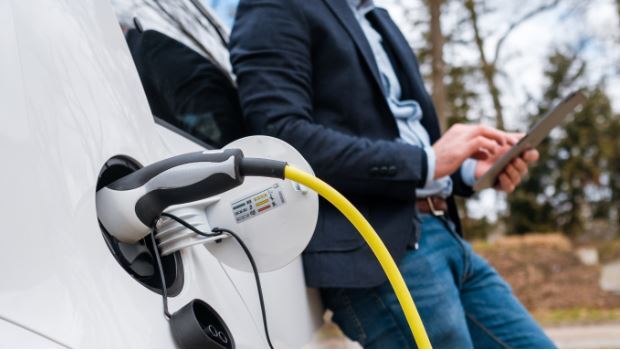
The rapid growth of electric vehicles (EVs) has sparked a significant transformation in the transportation industry. As more consumers embrace EVs for their environmental benefits and long-term cost savings, the need for a robust and accessible charging infrastructure becomes paramount. In this article, we will explore the latest developments and insights from multiple sources, including the Washington Examiner, CBC News, InsideEVs, the White House, ideastream, EVgo, WYSO, and Utility Dive, to understand the current state and future of EV charging infrastructure.
Revolutionizing Electric Mobility
The Rise of Innovative Charging Solutions
One of the key advancements in EV charging infrastructure is highlighted in the Washington Examiner, where Tesla introduces its “magic dock” concept. This revolutionary technology features a robotic charging arm that autonomously connects and disconnects from the vehicle, streamlining the charging process and enhancing user experience. Such innovations pave the way for more convenient and efficient charging solutions in the future.
Private Sector’s Role in Charging Infrastructure
CBC News emphasizes the growing involvement of private companies in expanding the EV charging network. As the demand for charging stations rises, various businesses are investing in the development of charging infrastructure to cater to EV owners. This private sector participation not only improves the availability of charging stations but also encourages healthy competition, leading to advancements in charging speed, efficiency, and user experience.
Government Initiatives Driving Expansion
The White House’s commitment to EV charging infrastructure is a significant driving force behind its expansion. According to a fact sheet released by the Biden-Harris Administration, plans are underway to install 500,000 new EV chargers nationwide by 2030. This ambitious target emphasizes the administration’s dedication to a sustainable and “Made in America” future for transportation. The initiative not only supports domestic manufacturing but also ensures accessibility and affordability for EV owners.
Regional Funding and Equitable Infrastructure

Regional initiatives play a crucial role in expanding EV charging infrastructure. ideastream reports on the Northeast Ohio Areawide Coordinating Agency (NOACA) approving over $3.5 million in funding to develop EV infrastructure in Northeast Ohio. The funding aims to increase the accessibility and equity of EV charging infrastructure, ensuring that all communities have equal access to charging stations. This focus on equitable infrastructure promotes inclusivity and encourages broader EV adoption.
EVgo’s Network Expansion
EVgo, a leading EV charging network operator, continues to expand its charging infrastructure. According to EVgo’s news updates, the company is actively deploying fast-charging stations across the United States, offering EV owners convenient and reliable charging options. Their focus on strategic placement, including urban centers and major highways, contributes to reducing range anxiety and encouraging long-distance travel in EVs.
Overcoming Challenges and Ensuring Functionality
Utility Dive highlights the challenges of inadequate and non-functioning EV charging stations. As EV adoption grows, it becomes crucial to address issues such as maintenance, repair, and reliability of charging infrastructure. Stakeholders need to collaborate to ensure that charging stations are well-maintained, functional, and capable of meeting the increasing demand.
EV charging infrastructure plays a pivotal role in facilitating the widespread adoption of electric vehicles. With innovations like Tesla’s “magic dock,” increased private sector involvement, and ambitious government initiatives, the future of EV charging is promising. Regional funding and a focus on equitable infrastructure aim to ensure accessibility for all communities, while network expansion by companies like EVgo helps create a robust charging network. However, challenges surrounding maintenance and functionality require ongoing attention. By addressing these challenges and continuing to invest in EV charging infrastructure, we can pave the way for a sustainable, efficient, and convenient transportation future.
I hope you enjoyed reading this information on the future of automotive.


